Not many university programs achieve a 100 percent success rate—even at Cornell.
One exception is the Veteran’s Summer Bridge Program (VSBP), established in 2018 to provide a leg up for veterans who might otherwise have been denied acceptance to the university. VSBP is an intensive six-week summer session where students enroll in one or two classes in their chosen field of study. Participants receive hands-on mentoring from fellow veterans (both staff and students), to help them prepare academically, socially, and emotionally for the rigors of life at Cornell. Upon successful completion of the program, students are admitted by their college.
Over the past seven summers, 73 veterans have participated in VSBP, with a 100 percent success rate—meaning that all these veterans went on to enroll as students at Cornell.
In both 2023 and 2024, Cornell was ranked by U.S. News & World Report as the top university in the country (along with the University of Chicago) for veterans. This recognition acknowledges both the comprehensive services for student veterans and our institutional commitment to support military-affiliated students. Notably, Cornell is home to the largest ROTC cohorts of all its Ivy Plus peers, representing all branches of the U.S. military.
Mary makes it happen for student veterans
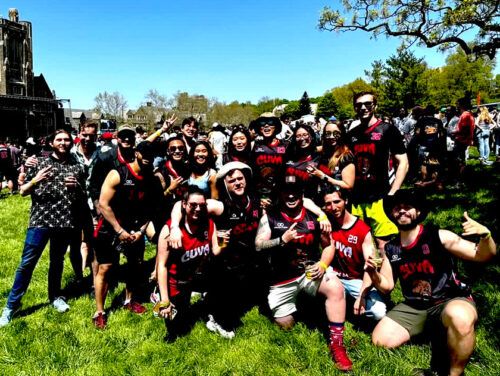
Mary Fisk, student veteran program director, is the driving force behind the VSBP program and its perfect track record. Mary started in her role five years ago, and, during her tenure, she has presided over an impressive expansion of veteran’s programs, resources, and community building at Cornell.
“I LOVE my job!” Mary says. “I see student veterans succeeding, thriving, and connecting in ways that weren’t possible five years ago. More of them are using the resources and participating in the programming we provide, and many tell me we’ve made a difference for them.”
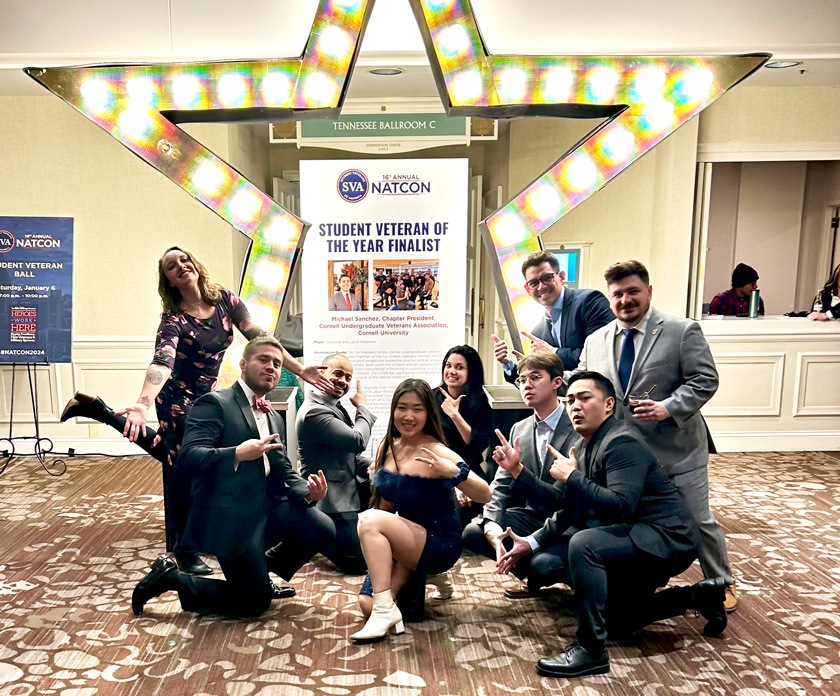
GI Bill reshaped higher education
“After the Servicemen’s Readjustment Act of 1944, or the GI Bill, was signed into law by President Franklin D. Roosevelt, the United States experienced a significant increase in college enrollment. The GI Bill was designed to aid veterans in their readjustment to civilian life by covering the costs to pursue further education at a college or university. In the decade following the bill’s enactment, the number of degrees awarded by colleges and universities in the United States more than doubled, largely due to the opportunities the bill provided (National Archives, 2022). This surge in educational access set a precedent for higher education as a pathway to economic stability and social mobility.”
—Nia Holland, 2024 recipient of the W.E.B. Du Bois Fellowship in Support of Diversity and Inclusion, a joint project of the Roper Center for Public Opinion Research at Cornell University and The American Association for Public Opinion Research. Read Nia’s piece on current public opinion around student loan debt relief in the U.S.
Wrap-around services, from A to Z
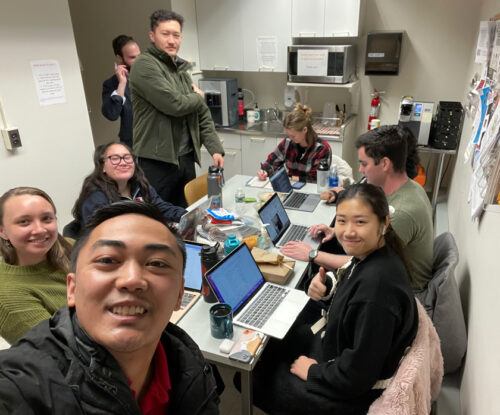
Mary has helped launch a plethora of new programs to support Cornell’s student veterans. They include everything from Mary’s Monday Munchies, to in-person recruiting at military bases, to career support and networking.
She relies on feedback from current student veterans to inform her work. Mary asks students to tell her (via surveys) what’s working well, what challenges they’re facing, and what gaps they see in programming or funding. She also solicits feedback from the Student Veteran Consortium, an umbrella organization with members from all five student veteran organizations on campus, as well as from unaffiliated veterans (who are not members of the formal groups)—to make sure everyone’s voice is heard.
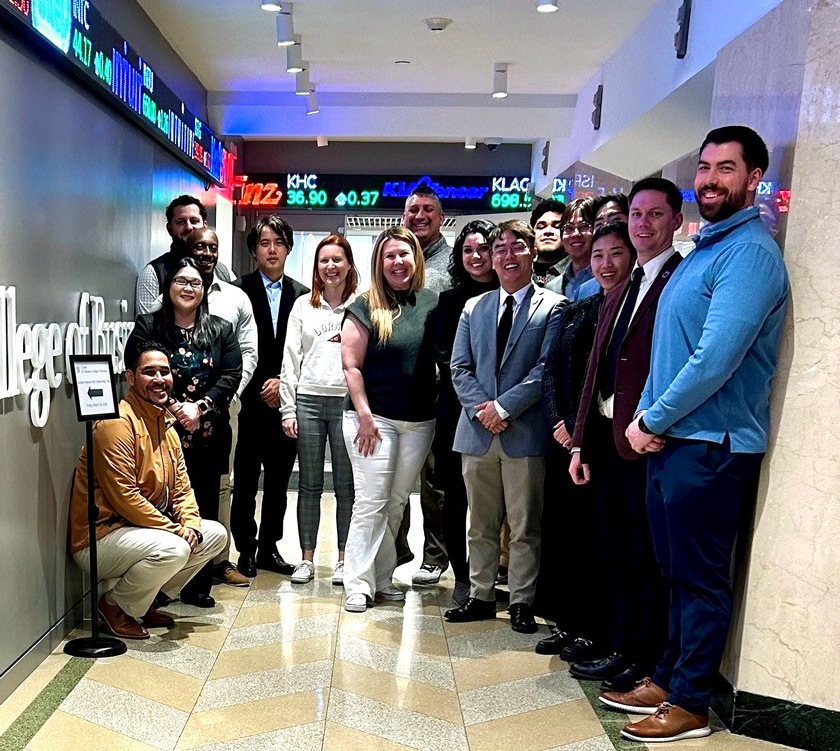
Mary shares some of the many small, but powerful, ways Cornell has stepped up to provide wrap-around support for student veterans:
- Veteran Program House residence for both veterans and non-veterans
- Streamlining of GI Bill processes to improve transparency and access to resources for financial aid and GI Bill users
- Networking visits with industry leaders in key cities
- New military appreciation and Veteran’s Day events
- New SALUTE Chapter/National Veterans Honor Society
- New website: www.veterans.cornell.edu
- Connection with local Tompkins County Veterans Services Officer and VA Clinic to provide enhanced services and support for healthcare, disability claims, etc.
- Expansion of Veteran’s Summer Bridge Program to all newly matriculating student veterans to help veterans make a smooth and successful transition to Cornell
- Inclusion of graduate student veterans in services, support, and programming
- Cornell Military Network for alumni established
- Market 214 to provide groceries to combat food insecurity
- Creation of a learning module for faculty/staff on veterans and military culture
- Student Veteran’s Lounge stocked with free snacks, fresh produce, instant meal options, and beverages
- Larger space for student veterans to gather
- Transition from ads to in-person recruiting at military bases and community colleges
- Designation as a Purple Heart University to support veterans who have received a Purple Heart Medal resulting from combat injuries
- Paid work study positions for student veterans as admissions peer counselors and ambassadors/sponsors of new student veterans
Huge help from her community
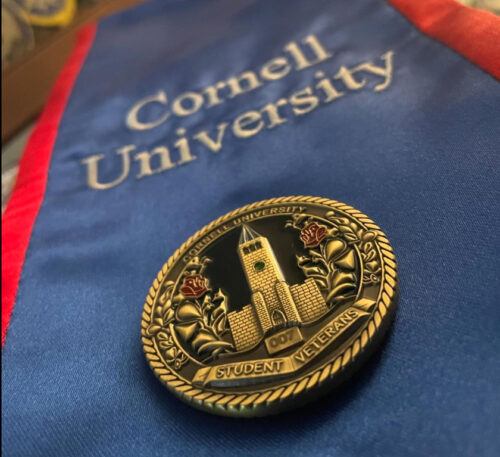
Students and recent alumni, like Indigo Routh ’24, report that Mary’s tireless efforts on their behalf are paying off.
“I was blown away by the amount of support available through the student veteran office,” Indigo says. “The work they do creates space for veterans to grow into the best versions of themselves, helping us find success both in and out of the classroom.”
Indigo served for six years as a Farsi translator for the U.S. Air Force, prior to deciding to change course and devote herself to her passion for plants and growing healthy food. She entered Cornell through the VSBP and graduated in May 2024 with a degree in plant sciences.
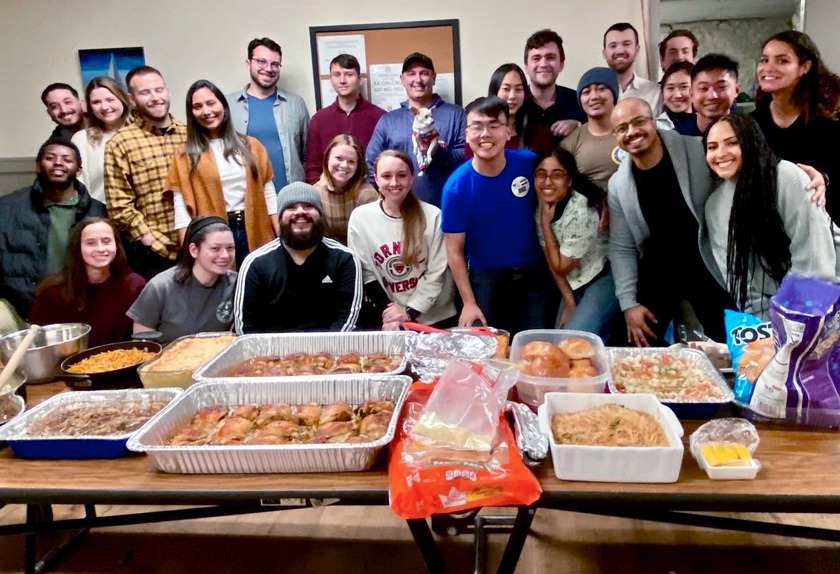
Indigo Routh ’24
“From the moment I set foot on campus, I knew this was the right path for me. Each day, I was reminded I made the right choice—whether through the infectious passion of my professors, the hands-on learning experiences in the Plant Sciences curriculum, the incredible research opportunities, or the privilege of walking in the footsteps of pioneers in the botanical field. And, of course, my connection to the student veteran community was my lifeline throughout the journey.
Mary has a wealth of knowledge, and she’s very supportive. A lot of my problems didn’t have to go past her, because she could help me. She’s also well connected with various offices around campus, and she has an army of tutors at her disposal. I knew anytime I needed help, she would be able to point me in the direction of a tutor.
The veteran’s office offered a lot of grants, which was a huge help. In my junior year I went to the National Arboretum in DC, where we crafted and installed stilts on the historic cherry blossom trees there. I was able to participate in that project because of the Ada Howe Kent Grant that was offered by the veteran’s office.”
—Indigo Routh ’24
Support that goes above and beyond
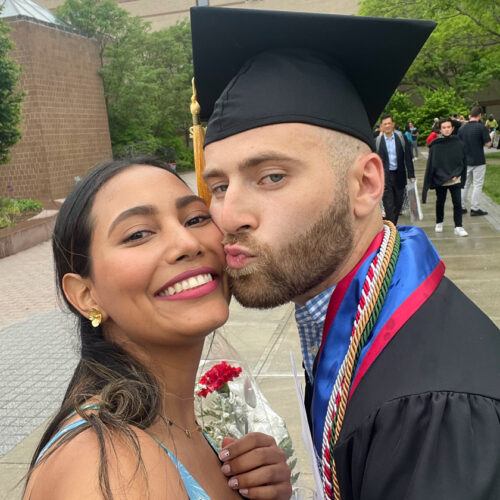
Paul Vermette ’22, MPS ’25, entered Cornell after serving as a geospatial intelligence analyst with the Air Force National Guard in Falmouth, MA. Raised by a single mother in New Bedford, MA, Paul was one of four children. As a high school dropout, a serious car accident became a turning point for him, prompting him to refocus and “get his life together.” He returned to night school to earn his diploma, enrolled in community college, and ultimately enlisted in the Air Force—committed to transforming his future.
“Cornell was my reach school. When I found out I was accepted, it was an out-of-body experience,” Paul recalls. “The financial aid was extremely generous. Basically, people cared and put in the effort to assist me with my finances.”
Paul didn’t qualify for Post-9/11 GI Bill benefits, and Cornell’s financial aid office helped him secure grant assistance totaling more than $200K, so that he could afford his Cornell education. Paul hopes to use his education to return to New Bedford and help his hometown to thrive.
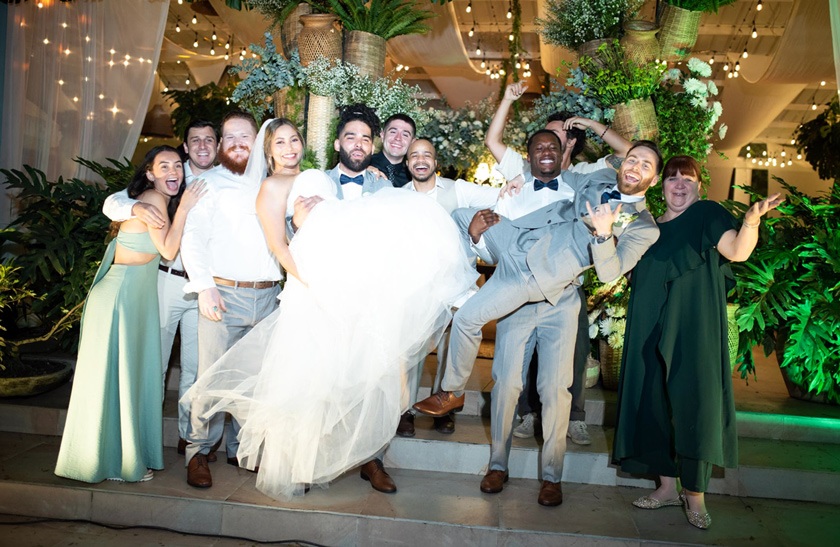
Paul Vermette ’22, MPS ’25
“One challenge I faced when I first started at Cornell was relatability. I was 25, taking classes with 19-year-olds. That may not seem like a big age gap, but as a veteran, I had a much different life experience than my peers. What alleviated that feeling for me was the veteran community on campus.
I think being a veteran made me a better student because I was less afraid to ask the important questions. In the military, if you’re not actively involved in learning during readiness training, you get called out. And, if you don’t ask the right questions, the results can be catastrophic. I learned not to fear my leader and that it’s ok to ask difficult questions. I learned to think critically, even with a power dynamic that’s not favorable to me.
If you are a veteran considering Cornell, come. You are absolutely bright enough to be here. Cornell’s motto is ‘… any person … any study’ for a reason. Yes, you may be a non-traditional student, but you will find that there are many salt-of-the-Earth people here. The veteran community is large and growing, and the academic resources are beyond what you could dream of having.”
—Paul Vermette ’22, MPS ’25
Alumni stand with student veterans
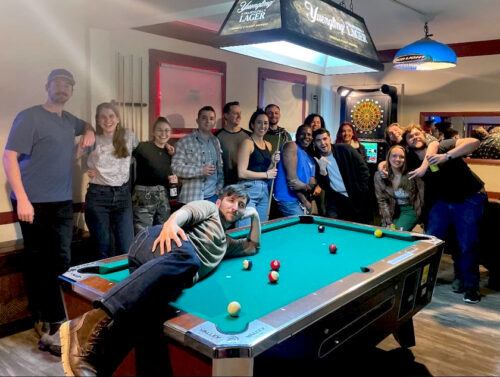
Mary says that the Cornell connections students like Indigo and Paul make are carrying over as they transition into alumni.
“They continue to stay engaged, connected, and give back,” Mary observes. “We’ve had several alumni donors provide substantial gifts to support student veterans with VSBP costs, food insecurity, professional development, summer internships, grad school exam fees, childcare costs, orientation, and the list goes on.”
These gifts really matter to student veterans, to help cover all the costs of a Cornell education.


